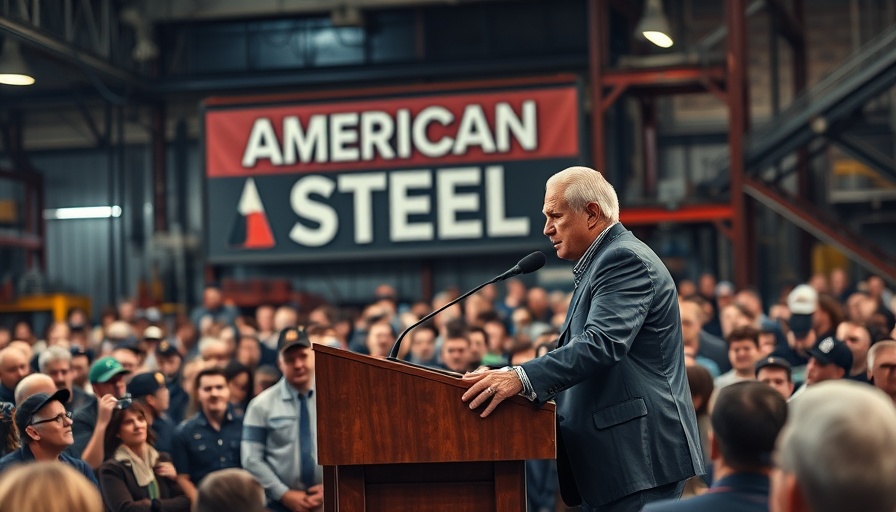
Trump Opens Door for Major Nippon Steel Investment in U.S. Steel
In a landmark decision that promises to reshape the landscape of American steel production, President Trump has signed an executive order allowing Nippon Steel to invest in U.S. Steel, contingent upon adherence to a national security agreement. This strategic move has significant implications for both the U.S. economy and the steel industry, ensuring that national security interests remain at the forefront of foreign investments.
Understanding the National Security Agreement
The executive order stipulates that Nippon Steel's investment, expected to reach approximately $11 billion by 2028, must comply with federal regulations designed to protect U.S. national security. While the specifics of these agreements often remain under wraps, they typically afford the U.S. government substantial oversight, including a 'golden share' that grants it veto powers over critical operational decisions within the company. Such measures highlight a growing trend where national security and economic interests intertwine, necessitating domestic vigilance in foreign investments.
The Economic Impact on Steel Production
This joint venture is described as a 'historic partnership' by both companies, with a vision of bolstering American steel production and supporting local communities. Executives from U.S. Steel and Nippon Steel have lauded the collaboration, positioning it as pivotal for sustaining jobs and fostering economic growth within steel-producing regions. As steel remains a backbone of the U.S. manufacturing sector, the success of this investment could lead to increased production capacity and technological advancements.
Ensuring Compliance and Transparency
Although the announcement highlights positive prospects for both companies and communities, questions linger regarding the transparency of the national security agreement. Legal experts advise that while companies may share parts of such agreements with the public, key details often remain undisclosed. This aspect raises concerns about the accountability of large transnational operations and the governance of vital industries influenced by foreign corporations.
National and Global Context of Steel Investments
The broader implications of this investment extend beyond just U.S.-Japan relations. The global steel market has witnessed significant volatility in recent years, fueled by geopolitical tensions and trade wars. Countries around the world are ramping up their domestic steel production capabilities, with the U.S. seeking to secure its steel industry from foreign dominance. Hence, this investment by Nippon Steel could be viewed as part of a larger strategy to ensure competitive parity on the global stage.
Future Predictions and Trends
As the deal progresses, stakeholders are eagerly observing how it may influence future policies surrounding foreign investment in sensitive sectors. Analysts predict that similar agreements may proliferate as safeguarding national interests becomes a priority for numerous industries. The success or challenges of the Nippon Steel partnership could set critical precedents for future international trade and investment ventures in the U.S.
Final Thoughts: Our Steel Future Is In Play
The partnership between Nippon Steel and U.S. Steel marks a crucial turning point for American steelmaking. It illustrates a bridge between American economic interests and necessary foreign investments, underscoring the delicate balance that must be maintained to protect national security while fostering economic growth. As both companies finalize their agreement, the steel industry's eyes will be firmly fixed on the forthcoming steps and the broader implications they will hold in reshaping American manufacturing.
 Add Row
Add Row  Add
Add 




 Add Row
Add Row  Add
Add 








Write A Comment